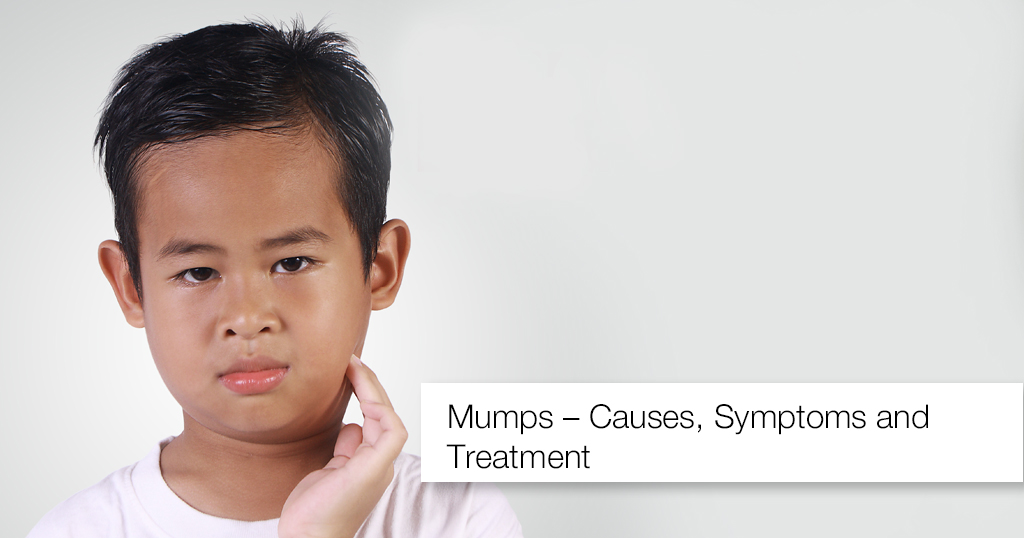Mumps is a viral infection, which spreads easily and can infect many parts of the body, but mainly affects the salivary glands which are situated toward the back of each cheek in between the ear and jaw. Mumps causes swelling and pain of the salivary glands.
Causes of mumps
The main cause is the mumps virus, and it easily spreads from person to person through infected saliva, sneezing or coughing and sharing utensils with the infected person. Onset of the symptoms usually takes 14-18 days after exposure to the virus.
Symptoms of mumps
Very mild symptoms are seen and these include fever, headache, loss of appetite, weakness, pain in chewing or swallowing and swollen cheeks.
Diagnosis of mumps
A simple examination can confirm mumps as the swelling in the jaw just in front of the ears is visible. A culture is performed by swabbing the inside of the throat or cheek. The swab helps in collecting mucus and cells, which is sent to a laboratory to be tested for the mumps virus. Presence of antibodies in the blood against the mumps virus will easily confirm the viral infection.
Treatment of mumps
Since mumps is a viral infection, it cannot be treated with antibiotics and it simply resolves on its own within two weeks. Pain killers such as ibuprofen or paracetamol can be used, and applying cold packs on the swollen area may also be helpful.
Home remedies include pain relievers, complete rest, keeping ice/cold compress on swollen areas, serving soft/bland diet that doesn’t involve a lot of chewing, increase intake of fluids and isolation of the patient to prevent the spreading of the disease.
Complications of mumps
Serious mumps complications may happen but they are quite rare in occurrence. Mainly inflammation and swelling in some parts of the body are seen:
- Orchitis: Painful swelling of one or both testicles in men.
- Pancreatitis: Inflammation of the pancreas, include pain in the upper abdomen, nausea and vomiting.
- Oophoritis or Mastitis: In women, inflammation of the ovaries and breasts respectively.
- Encephalitis: Inflammation of the brain. It may lead to neurological problems and become life-threatening.
- Meningitis: The mumps virus spreads via bloodstream to infect the central nervous system.
Prevention of mumps
MMR (measles-mumps-rubella) vaccination is the safest and most effective procedure to prevent mumps. Two doses of MMR are usually given at the age of 12-15 months and second at 4-6 years of age or 11-12 years of age if not given previously.


















